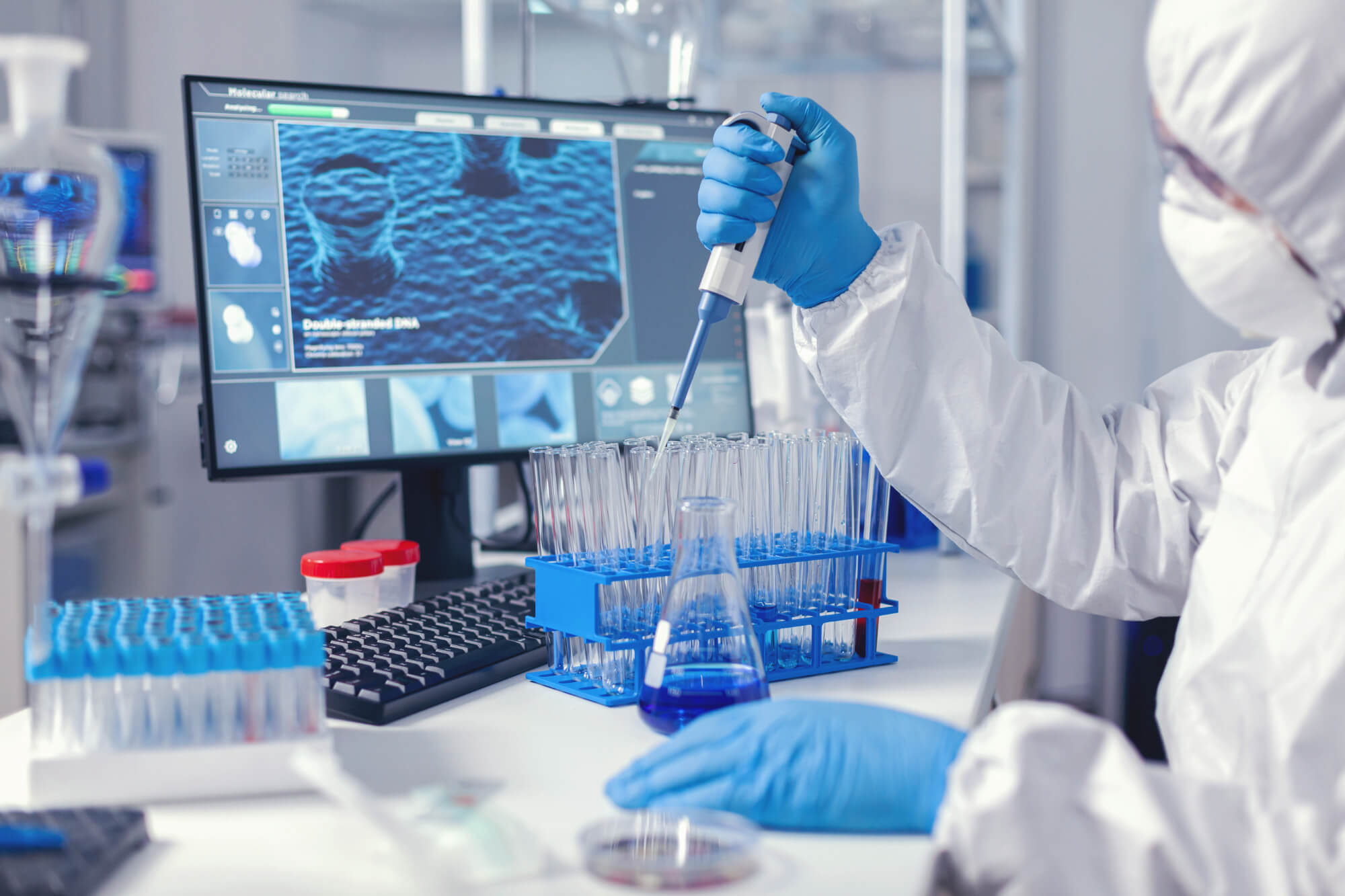Extending Boundaries of Protein Therapies
Leveraging on the Mammalian Elongated Chromosome (MEC) based Cell Line Development Platform
Our ambition is to become one of the key players in supplying research materials/products to CDMOs, research centers, and enabling pharma and biotech companies to optimize their product development, leading to faster and superior delivery of products to patients.


Infrastructure
and IPRenowned
Laboratorieswith Prominent
ResearchersXPAMAC Inc. is a biotechnology startup based in Szeged, Hungary, offering cell line development services for the biotech industry, developing next-generation mammalian cell lines for the efficient, stable, and scalable production of therapeutic proteins.
Our proprietary platform built on “Mammalian Elongated Chromosomes”, enables high-yield expression of complex biologics, including monoclonal antibodies and other difficult-to-express proteins.
The XPAMAC technology integrates expression cassettes into genomic “safe harbor” regions while allowing control of transgene copy numbers and amplification. This leads to accelerated cell line development, long-term protein expression stability, and significantly increased protein yield compared to traditional gene integration methods. The platform has been successfully validated in CHO-K1, CHO-DG44, and HEK293 cell lines.
XPAMAC Inc has 10+ employees and was founded by venture capitalists and distinguished scientists from the Nobel Prize-winning University of Szeged and the HUN-REN Biological Research Centre of Szeged, Hungary.
XPAMAC’s multidisciplinary team of scientists and business professionals is committed to supporting partners in overcoming manufacturing bottlenecks in biologics development. The company is actively expanding its international collaborations with biopharma companies and CDMOs partners and aims to become a trusted innovation partner in the evolving biologics manufacturing landscape.
XPAMAC’s comprehensive strategic framework ensures transformative protein manufacturing and protein therapeutic development


Leveraging on the Mammalian Elongated Chromosome (MEC) based Cell Line Development Platform

Molecular Biology, Chemical Biology, Basic Science

Pilots In Protein Therapy

From Start
With over 25 years of experience in the leadership of self-owned business ventures and investments in four continents (Europe, Australia, Asia, North America) behind his back, he can confidently say he found his calling.
Taking part in overseeing new, innovative developments in the Real estate, IT, Biotech and Financial industries has been a true passion for him over the years.
He is leading the establishment of XPAMAC Inc. leveraging on his outstanding business and networking capabilities.
As a specialist in protein expression and engineering, Dr. Attila Szvetnik has extensive knowledge of producing proteins in both mammalian and bacterial host organisms.
He received his degree as a molecular biologist specialized on biotechnology from the University of Szeged in 2001. He joined the Bay Zoltán Foundation for Applied Research as a Ph.D. student and was involved in a wide range of industrial biotechology projects and research, such as the development of diagnostic tools for bioremediation or protein engineering and expression in bacteria. Following a successful defense, he remained at BayBio as researcher.
In 2012 he joined the Mobile DNA group as a postdoctoral fellow at the Max Delbrück Center for Molecular Medicine (Berlin-Buch) and participated in the basic research of transposable elements (Sleeping Beauty and human PiggyBac trasposon systems).
He joined Creative Laboratory Ltd. as a senior researcher in 2018, where he conducted genetic engineering and production of monoclonal antibodies, viral proteins and other difficult-to-express proteins like complement inhibitors.
She obtained her MSc in biotech engineering from the Technical University of Budapest, Hungary. Afterwards she worked at the Biological Research Centre, Szeged, Hungary and earned her PhD at the University of Szeged, Hungary in 2009. She spent her post doc years at the University of Szeged, Hungary and at the University of Birmingham, UK.
She started her business development carrier at Solvo Biotechnology in 2006. She moved to Egis Pharmaceuticals (Servier Group) in 2014 where she contributed as a business development professional to Egis’s biosimilar development and to the development of an in vitro diagnostics medical device suitable for the response prediction of RA patients to infliximab therapy before treatment initiation. Later she served as a managing director of PentaCoreLab (Egis subsidiary) during a critical period.
She joined XPAMAC Inc. as a business development advisor supporting several aspects of its operation leveraging on her 18 years’ experience in the pharma service and pharma industry.
He obtained his MSc in Chemistry from the University of Szeged, Hungary in 1996. Afterwards he earned his PhD degree at the same university in 2001 under the supervision of Prof. Ferenc Fülöp and with the guidance of Dr. Frank G. Riddell at the University of St. Andrews, UK.
He started his independent career in peptidic foldamers, focusing on their controlled folding and protein mimicry. He is a full professor and the head of the Department of Medical Chemistry at Albert Szent-Györgyi Medical School, University of Szeged, Hungary. He is active in biomimetic self-organizing systems and their applications in drug discovery: endocytotic cell penetration, antimicrobial foldamers, modulation of protein-protein interactions, and light-fueled peptidic replicators. He and his research group discovered a short peptidic tag that binds to the mammalian cell’s lipid rafts and, thereby, induces controlled entrapment-free endocytosis to the cytosol. This method can deliver therapeutic antibodies to the cytosol at low nanomolar extracellular concentrations. Currently, Prof. Martinek is joining forces with XPAMAC Inc. to find therapeutic applications for their cytosolic delivery technology in combination with the XPAMAC cell line development.
He received his medical degree from the Semmelweis Medical University in 1993 and worked for 6 years as a physician and researcher at the National Institute of Cardiology in Budapest, where he obtained his specialist degree in internal medicine. He worked as a research fellow at the University of Parma in 1996. From 1998, he was the founder and for more than 10 years the director of Goodwill Research Ltd., which was mainly engaged in pharmacological and clinical trials. He was the co-founder and later managing director of the Svábhegyi Paediatric Institute, which was reorganized in 2007 and integrated into Doktor24 Medicina Zrt. in 2020. In 2023, as CEO, he restructured Auxiliis Pharma Ltd., which has been involved in clinical research for decades and is currently engaged in biomarker research. Since 2022, he has been leading the Healthcare Innovation and IT section of the National Association of Entrepreneurs and Employers, and is a member of the Healthcare Section’s Board.
With a medical degree in hand, he started his career in the laboratory of Prof. Gyula Hadlaczky (Biological Research Centre, Szeged, Hungary), where he participated in the discovery of the genetic processes leading to the first mammalian artificial chromosome (MAC). Afterwards he moved to the field of immunology and studied the immunoregulatory effects of the tumor necrosis factor-like molecule TL1A. Dr. Tubak received his PhD in 2010 on this topic. In parallel, he developed highly efficient PCR kits for sensitively detecting various HPV infections. Based on this technology, he established a start-up (Creative Laboratory Ltd) to commercialize his invention in clinical diagnostics. He is the CEO of the Creative Laboratory Ltd. In 2015, he returned to the competitive field of MAC technology to harness its advantageous features for a leading cell line development method. He specialized in a new MAC-based methodology for producing difficult-to-express proteins with constant high yields (XPAMAC).
Cell Line Development Based on Mammalian Elongated Chromosome (MEC)

